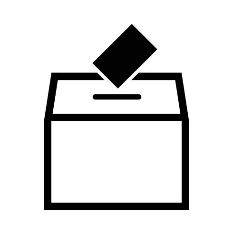
Using blockchain for voting could be risky, as the technology could introduce “new vulnerabilities” to elections, according to a new Government Accountability Office report.
While some organizations have argued that blockchain-based systems would make elections more secure and easier to audit, “there might be added points of attack that could compromise elections,” the report said.
“We talked to a number of experts who all indicated that they did not believe blockchain was the magic bullet answer for making voting systems more secure,” Karen Howard, the GAO’s director of Science, Technology Assessment and Analytics, told Protocol.
The GAO report, titled “Blockchain: Emerging Technology Offers Benefits for Some Applications but Faces Challenges,” examined the potential of the technology, including in the public sector. Overall, the report “found that blockchain is useful for some applications but limited or even problematic for others.”
“For example, because of its tamper resistance, it may be useful for applications involving many participants who do not necessarily trust each other,” the report said. “But it may be overly complex for a few trusted users, where traditional spreadsheets and databases may be more helpful.”
One area where blockchain shows some promise is in supply chain management, Howard said.
“The federal government is a major purchaser and supply chain tracking is a major function,” she said. The GAO found that blockchain technology could potentially be used “to replace or make more efficient” certain processes such as supply chain tracking and recording contracts, Howard said.
I disagree with this tiny little article, of course. But, I wanted to play devil’s advocate for a moment on this idea.
Top Teddit comment by /u/denverpilot:
"Summary of article:
Tracking things with a cryptographically solid chain of custody might be hard… because… hand wave… we like spreadsheets better and our admin level people are dumb.
And we’ll distract and talk about supply chains instead because… that sounds more interesting… even though we were tasked with looking at voting.
I don’t think the bureaucrat understood the assignment."
The first problem I can think of with using blockchain for voting is that it kicks the door wide open for vote selling. The moment you can definitively prove that you voted a certain way, you make it rivial for people to straight up buy elections.
deleted by creator
How do you figure? If the ledger isn’t readable then it wouldn’t be auditable, and if it’s readable then you can sell votes.
Honestly I’m not even sure what problem a blockchain would be solving here, what’s the design goal?
deleted by creator
A paper on Secure E-voting Using Homomorphic Technology.
I just have to say that must be the shittiest font I’ve ever seen used for academic research. I might still read it since it’s only a few pages!


